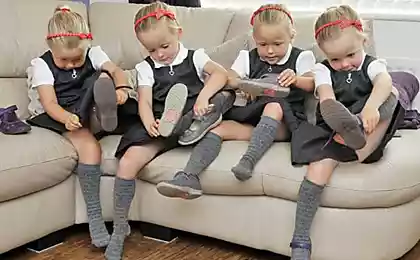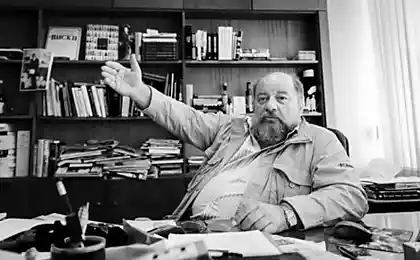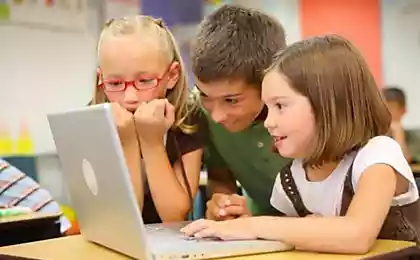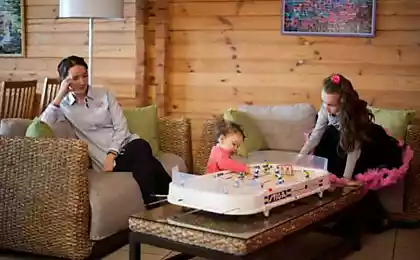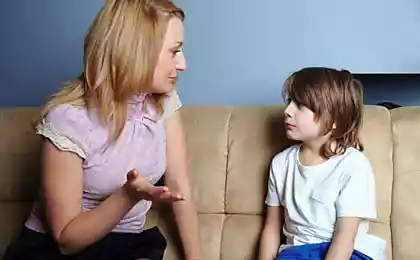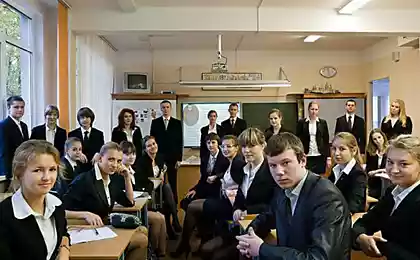725
Three process of pedagogical influence in school: Find out what is the most important
His disciples I said, "What matters to you in class is the study of topics or communication with the teacher?"
Their unanimous answer surprised me — the students chose the communication with the teacher.
Pedagogical effect combines three different processes:
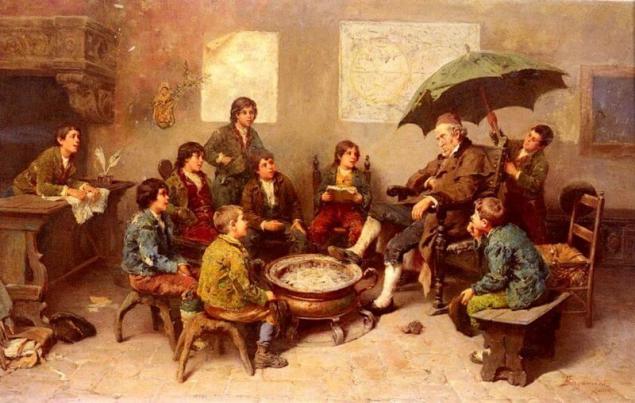
Traditionally, our education system teachers are limited to the first two, leaving much less time for the most important pedagogical action communication. And you can understand why we are inclined to omit communication, it does not agree with the management and teaching.
The doctrine requires that the teacher surpassed the pupil in knowledge and experience. To control all the more necessary superiority in age or authority. The greater the superiority, the easier it is to control, to dominate.
Communication, on the contrary, demands absolute equality! Any inequality, superiority, the power necessary to control, complicate the communication.
But how can I be equal with a child? What do you mean?
People are not equal in intelligence, experience, age, position, talent, but the souls of all people are completely equal. Moreover, equal the souls of the living and those who lived two hundred, five hundred and a thousand years ago, otherwise we would not be able to read Homer, Shakespeare, Pushkin, Tolstoy, Chekhov. Between our souls and the souls of their heroes, there is no difference. On mind we different, on knowledge immeasurably different, but their feelings are close to us: passion, fear, sadness, joy.
We may not be very understandable desire of another person, because desires hundreds, but the feelings are somehow understood by all!
In principle, everyone can communicate with everyone, but not everyone needs it: adults can't take off the uniform superiority, to open your soul, feel the soul of the child equal. In fact, this is the pedagogical talent in ability to feel in the child equal to himself.
Many people think control we teach children to obey the laws, create (formed) habits. It seems to be a reasonable argument. But actually only communication does children vospituyemy. Management limits, oppresses, and communication equalizes unequal, humanizes. Where there is no communication, there and management of children is impossible they do not hear seniors, and we can only complain about what we got hard, unfeeling children.
So in school and in the family. Difficult children – those who have no mental and spiritual contacts with adults. Difficult parents those who is not able and does not want to establish such contacts, who resent the idea of equality with children.
When we do not get contact with their children, we feel guilty and we want to shift the blame on someone. Easier just to blame it on society: "Do you think that nowadays you can grow a good child? In this horrible school? Surrounded by such people?". Much harder to take responsibility for the spirituality of our own children and our pupils.
As best I can, slowly, trusting in the moral strength of the child, extend to him our aspirations to goodness, truth and beauty, that is, strengthen his spirit. This is sufficient for a good education, nothing more is needed!
In fact, if our grown-up pupil in all life choices will be attracted to the side of good, then why do we still have to ask for!
Ask: but what about those parents who have no aspirations to high? How to raise children? No way! What would these people do, they will not work, and the only spasene for their children, other educators...
Also interesting: the Education freedom
Howard Rheingold: How the Internet blurs the line between students and teacher
Education of children is a strengthening of spirit spirit, and other education simply is not – neither good nor bad. As it turns out, but that didn't work, that's all.published
Author: Lyudmyla Andrievska
Source: Ludmila Andrievsky
Their unanimous answer surprised me — the students chose the communication with the teacher.
Pedagogical effect combines three different processes:
- to manage
- to teach
- to communicate.

Traditionally, our education system teachers are limited to the first two, leaving much less time for the most important pedagogical action communication. And you can understand why we are inclined to omit communication, it does not agree with the management and teaching.
The doctrine requires that the teacher surpassed the pupil in knowledge and experience. To control all the more necessary superiority in age or authority. The greater the superiority, the easier it is to control, to dominate.
Communication, on the contrary, demands absolute equality! Any inequality, superiority, the power necessary to control, complicate the communication.
But how can I be equal with a child? What do you mean?
People are not equal in intelligence, experience, age, position, talent, but the souls of all people are completely equal. Moreover, equal the souls of the living and those who lived two hundred, five hundred and a thousand years ago, otherwise we would not be able to read Homer, Shakespeare, Pushkin, Tolstoy, Chekhov. Between our souls and the souls of their heroes, there is no difference. On mind we different, on knowledge immeasurably different, but their feelings are close to us: passion, fear, sadness, joy.
We may not be very understandable desire of another person, because desires hundreds, but the feelings are somehow understood by all!
In principle, everyone can communicate with everyone, but not everyone needs it: adults can't take off the uniform superiority, to open your soul, feel the soul of the child equal. In fact, this is the pedagogical talent in ability to feel in the child equal to himself.
Many people think control we teach children to obey the laws, create (formed) habits. It seems to be a reasonable argument. But actually only communication does children vospituyemy. Management limits, oppresses, and communication equalizes unequal, humanizes. Where there is no communication, there and management of children is impossible they do not hear seniors, and we can only complain about what we got hard, unfeeling children.
So in school and in the family. Difficult children – those who have no mental and spiritual contacts with adults. Difficult parents those who is not able and does not want to establish such contacts, who resent the idea of equality with children.
When we do not get contact with their children, we feel guilty and we want to shift the blame on someone. Easier just to blame it on society: "Do you think that nowadays you can grow a good child? In this horrible school? Surrounded by such people?". Much harder to take responsibility for the spirituality of our own children and our pupils.
As best I can, slowly, trusting in the moral strength of the child, extend to him our aspirations to goodness, truth and beauty, that is, strengthen his spirit. This is sufficient for a good education, nothing more is needed!
In fact, if our grown-up pupil in all life choices will be attracted to the side of good, then why do we still have to ask for!
Ask: but what about those parents who have no aspirations to high? How to raise children? No way! What would these people do, they will not work, and the only spasene for their children, other educators...
Also interesting: the Education freedom
Howard Rheingold: How the Internet blurs the line between students and teacher
Education of children is a strengthening of spirit spirit, and other education simply is not – neither good nor bad. As it turns out, but that didn't work, that's all.published
Author: Lyudmyla Andrievska
Source: Ludmila Andrievsky
The art of listening is the best way to learn to speak
Eco-friendly flooring from wood house: what you need to know

